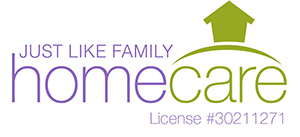Did you know that 2020 was Florida’s hottest year on record? While warm weather and constant sunshine are why many seniors choose to spend their retirement in Florida, adults aged 65 years and older are at an increased risk for heat strokes, heat exhaustion, and other heat-related illnesses.
Seniors must take extra precautions when they are out in the Florida heat to prevent hot weather health problems.
Keep reading on to learn more about heat-related illnesses, senior’s risk for heat stroke, and ways to keep you and your loved ones safe during the heat.
What is Heat Stroke?
Heat stroke occurs when the body fails to regulate its temperature properly.
When it occurs, the body’s temperature rapidly increases. The body’s temperature can reach 106 degrees or more within just 10 to 15 minutes when this occurs.
Symptoms of heat stroke include:
- High body temperature
- Red, hot, dry skin
- Inability to sweat
- Intense headaches
- Nausea
- Dizziness
If you or a loved one is experiencing any symptoms of heat stroke, call 9-11 immediately. Find a cool air-conditioned area and offer fluids until help arrives.
What is Heat Exhaustion?
Heat exhaustion occurs when someone has prolonged exposure to high temperatures and inadequate fluid intake.
This is less serious than a heatstroke, but many times if left untreated, heat exhaustion will lead to heatstroke. Symptoms of heat exhaustion include:
- Heavy sweating
- Hot flashes
- Pale skin
- Muscle cramps
- Dizziness
- Fatigue
- Nausea
- Fainting
- Clammy skin
- Fast and weak pulses
- Fast and shallow breathing
Heat exhaustion is still a dangerous condition for seniors, and to avoid complications of heat exhaustion, action needs to be taken immediately.
Elderly Risk Factors
Aging causes many changes in the body. Unfortunately, some of these changes make it harder for adults over 65 to regulate their body temperatures when exposed to the heat.
For example, sweat is one of the most crucial ways the body regulates its temperature. Adults over 65 years old sweat less than younger adults. Normal changes in aging skin can cause sweat glands not to work as effectively and limit the body’s ability to sweat.
In addition to a decrease in the ability to sweat, fat storage also changes as we age. Body fat storage plays a vital role in how the body regulates its heat. Since seniors store body fat differently than younger adults, this further complicates heat regulation as we age.
Chronic health conditions that many seniors face can interfere with the body’s ability to regulate heat in hot temperatures. For example, chronic conditions such as kidney disease, certain blood circulation conditions, and lung disease all interfere with the body’s ability to regulate body heat.
Not only do these conditions impact the body, but many times the prescription medications needed to treat these conditions can affect the body’s ability to sweat. There are several prescription medications that interfere with sweating and temperature regulations. Some of which include diuretics, sedatives, tranquilizers, and some cardiac and high blood pressure medications.
It is important to discuss with your doctor and be informed of all side effects, including the inability to sweat, to know if you or your loved one is at risk of a heat-related illness if exposed to high temperatures.
Preventing Heat-Related Illnesses In Seniors
It is recommended that seniors have someone check on them a few times a day. Especially in the hot and humid Florida summer heat.
Ensuring your loved one follows these guidelines can help prevent them from developing heat exhaustion or heatstroke during Florida’s summer heat.
Hydrating Throughout the Day
Ensuring seniors are drinking enough water and limiting alcoholic and caffeinated drinks is always important, especially during the summer heat.
Dehydration reduces the body’s ability to regulate body heat. This greatly increases senior’s risk of developing a heat-related illness.
Access to Air Conditioning
Seniors need access to air conditioning when in Florida heat. Fans are also handy to have around to help seniors cool off or as a backup if something were to go wrong with the air conditioner.
Check the Weather and Plan Accordingly
Monitor the heat and humidity indexes and plan outdoor activities around times when coolest and low humidity levels occur. Plan to go shopping indoors or stay home when the temperatures are high and go visit the beach or enjoy the outdoors earlier in the day or later in the evening.
Dress Appropriately
Ensure your loved one is wearing clothes that will keep them cool. Overdressing can lead to heat-related illnesses. Hats are also a great accessory to keep seniors cooled off and shaded from the heat.
Avoid Strenuous Activities
In addition to making sure someone is checking on your loved one, make sure strenuous household chores are being cared for by someone other than the senior.
Strenuous household chores can cause body temperatures to elevate and deplete energy. This puts seniors at an increased risk of heat-related illnesses.
Just Like Family Home Care can help find a wide range of services to help you or your elderly loved ones. Whether they need care from a medically trained caregiver or a friend to check in on them and provide company.
Keeping Your Loved Ones Safe
Flordia has a lot to offer for senior living and can help keep seniors involved in the community and active. However, the Florida heat can become dangerous to seniors during the summer. It’s crucial that you and your loved ones know the signs of heat exhaustion and heat stroke and acts fast if they start to experience symptoms.
To give you peace of mind knowing your loved one is being checked up on or finding medically trained caregivers to help you or your loved one, contact us at Just Like Family Home Care today to find help.

